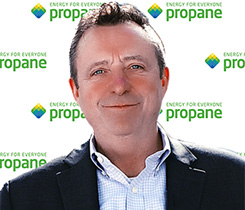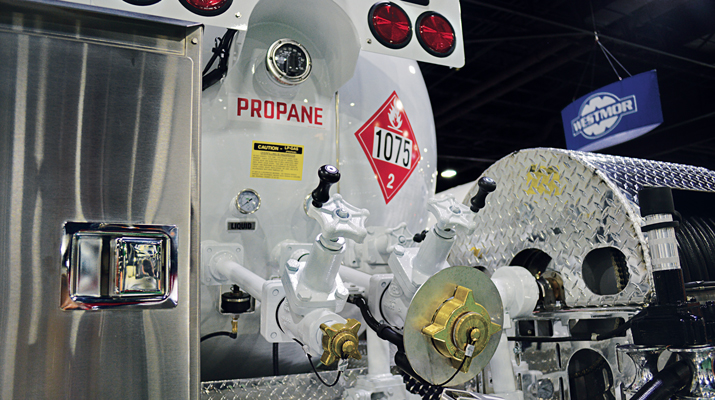Marketers should encourage propane efficiency upgrades
Sweeping efficiency changes that affect the entire water heater industry took effect April 16.
The 2015 Department of Energy (DOE) final rule requires higher energy factor ratings on virtually all residential gas storage tank and tankless, electric and oil water heaters. The DOE also announced long-term plans to do away with noncondensing gas furnaces by 2021, if the rulemaking process stays on its current schedule. This means that all newly manufactured residential and mobile home furnaces would need to achieve a 92 percent or higher annual fuel utilization efficiency. These two changes in standards will affect the highest two energy uses in the typical home.
Some say this is another attack on our residential base load. So why am I so optimistic that higher efficiency will be a great opportunity for the propane industry? Let’s look at the new water heater mandates.
The propane industry has been losing the water heating market to electric over the last two decades or more. It has been “death by a thousand cuts,” as propane marketers moved away from merchandising and selling appliances, and plumbers, big box stores and the last housing boom drew consumers to cheap electric storage tank water heaters instead of gas models.
These trends had a multiplying effect in propane country where consumer perceptions of propane pricing are not always favorable. Several surveys have confirmed that only 30 to 40 percent of your residential propane customers who use propane as their heating source also use propane for water heating. Those cheap electric water heaters are lurking in the basements, utility rooms or garages of millions of propane customers’ homes, driving up electric bills and spitting out cold showers at the most inconvenient times.
Here are some ways the water heater market is tilting in your favor.
The newly enacted water heater efficiency standards actually favor propane in several ways. Storage tank water heaters – gas and electric – will need much more insulation to comply with the new efficiency standards. This means that all storage tank models will be taller and larger in diameter, making water heater replacement more challenging because the same size tank in gallons may not fit in the same location.
So the plumber who made a living driving around with a standard 50-gallon electric storage tank water heater on the back of the truck to make fast change-outs will need to be more thoughtful about replacement strategy. Now, plumbing will need to be rerouted, if the new electric unit will even fit in the space available. The tactics for the plumber can now include switching that old electric water heater to a smaller size gas model that will still produce more hot water than the cheap electric unit and will fit in the space available with multiple venting options.
All gas storage tank models built under the new standard will require added insulation and incorporate newer flue baffling technologies. They will also include electronic ignition in lieu of the standing pilot. The advantage in gas over electric is that a smaller storage tank gas water heater will deliver more hot water than an equivalent electric model. This is a critical difference in favor of propane under the new standard when plumbers don’t want to downsize an already inadequately performing electric water heater to make it fit, and all retrofit installations will require replumbing anyway.
Electric storage tank models with more than 55 gallons will likely only be heat pump technology. This is another opportunity for propane. Heat pump water heaters are much larger than equivalent old technology electric storage tank models, include “sticker shock” pricing, need to be placed in a large room for proper air flow and operate with a high noise level.
Under the new standards, tankless gas water heaters will continue to offer the biggest opportunity for the propane industry to take back the water heating market from electricity. Propane tankless water heaters already meet the new standards for efficiency and have significant size and performance advantages over electric storage tank models. Tankless water heater manufacturing and installation costs are unaffected by the updated standards, narrowing the upfront price differential between storage tank and tankless models.
On the positive side, when products become more complex, it is less likely the do-it-yourself consumer will purchase and install them. Knowledgeable, qualified and trusted seller and installer opportunities will increase. Are you ready for those opportunities?
Tom Jaenicke is the founder and principal adviser at ATomiK Creative Solutions LLC. Contact him at 810-252-7855 or tom@atomikenergysolutions.com.















